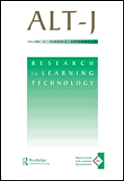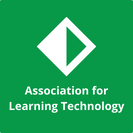
Few doubt that technology will change the nature of the student experience and transform schools, colleges, and universities as institutions of society – but how and what will be the impact? Research from Australiasuggests many still lack either the willingness or capability to adapt or “disrupt” their existing educational models. The study warns “...only a very few universities can depend on their reputation and not respond to the demands of governments and students to deliver a more flexible and less expensive education.”
Meanwhile, new evidence is emerging from a study in the UK (Teesside University) to show how learning innovations using voice boards can bring significant benefits to groups ranging from the visually impaired or students needing to practice their English speaking and hearing skills to learners on programmes for counselling or conflict resolution where students’ audio interaction skills must be developed.
A series of papers from around the world are drawn together by three influential guest editors in the latest edition of the ALT’s peer-reviewed journal ALT-J, Research in Learning Technology. Through some of the latest studies available, they look at the scope for technology to transform learning for individuals and institutions. Papers include a perspective from Spainon how to get the best from ICT in primary and secondary schools through the participation of the whole teaching staff. Another study from Australiaanalyses how Teaching Fellows in schools have improved teacher and learner performance by increasing the awareness of flexible and blended learning strategies.
The three guest editors are John Bourne, Professor of Electrical and Computer Engineering at the Franklin W. Olin College of Engineering, Executive Director of the Sloan Consortium in the US; Martin Hall, Vice-Chancellor of the University of Salford, United Kingdom; and Mike Keppell, Professor of Higher Education and Director of the Flexible Learning Institute, Charles Sturt University, Australia.
Martin Hall says "New technologies are ever more important in all levels of education, as is thoughtful, evidence-based consideration of what works best in real world situations. The papers in this collection make a significant contribution to understanding what makes good practice, to direct benefit of learners".
For Mike Keppell, the issues focus centrally of the challenge of change:“Learning technologies have become an integral part of educational organisations as they enable the achievement of strategic goals in learning and teaching. This issue focuses on the challenges of organisational change, transformation, leadership, curriculum renewal and the implementation of a diverse range of technologies that impact on the student experience. The papers embrace these challenges and describe useful principles for practitioners across all levels of education.”
And for John Bourne: “This issue is important because it will assist the reader in understanding the transformational impact of the use of learning technologies on organisations. Issues around leadership, organisation structures, blended methods and how various technologies impact transformation will be of significant interest.”
Seb Schmoller, Chief Executive of ALT, said: “This special issue of the ALTjournal represents a first for ALT. We’ve produced it in partnership with the Sloan Consortium and the Australian Society for Computers in Learning in Tertiary Education. With the support of our publisher Routledge we are making it freely available without the normal 18 month embargo. We are looking forward to further collaborations of this kind.”
Notes to Editors:
ALT is a professional and scholarly association. ALT's charitable object is “to advance education through increasing, exploring and disseminating knowledge in the field of learning technology for the benefit of the general public”. Its six aims are to:
- represent and support our members, and provide services for them;
- facilitate collaboration between practitioners, researchers, and policy makers;
- spread good practice in the use of learning technology;
- raise the profile of research in learning technology;
- support the professionalisation of learning technologists;
- contribute to the development of policy.
ALT has over 200 organisational members including most of the UK’s universities, many FE colleges, and several globally important information technology businesses. ALThas published ALT-J, Research in Learning Technology since 1993.
Details of Guest Editors
John Bourne is Professor of Electrical and Computer Engineering at the Franklin W. Olin College of Engineering, Professor of Technology Entrepreneurship at BabsonCollege(Wellesley, MA) and Executive Director of the Sloan Consortium.
Martin Hall is Vice-Chancellor of the University of Salford, United Kingdom. He was previously Deputy Vice-Chancellor at the University of Cape Town, where he was engaged with information and communication technologies in Higher Education for more than a decade. Work in this and other areas is at www.salford.ac.uk/vc
Mike Keppell is Professor of Higher Education and Director of the Flexible Learning Institute, Charles Sturt University, Australia. He is also a past President of ascilite. His current focus is flexible learning, blended learning design, physical, blended and virtual learning spaces and institutional transformation using academic fellowship programs.
For further information contact Seb Schmoller, Chief Executive of ALTon +44 114 2586899, or by email: seb.schmoller@alt.ac.uk.
ALTis registered charity 1063519. Gipsy Lane, Heading ton, Oxford, OX3 0BP, UK.
